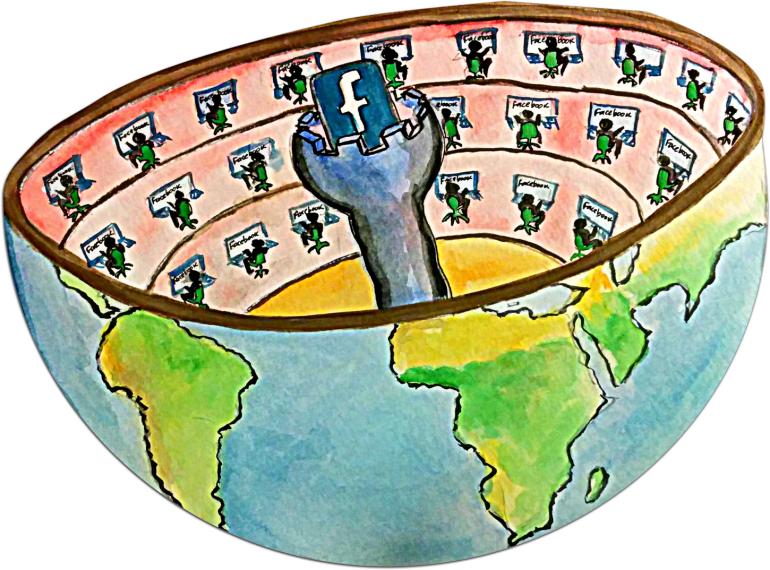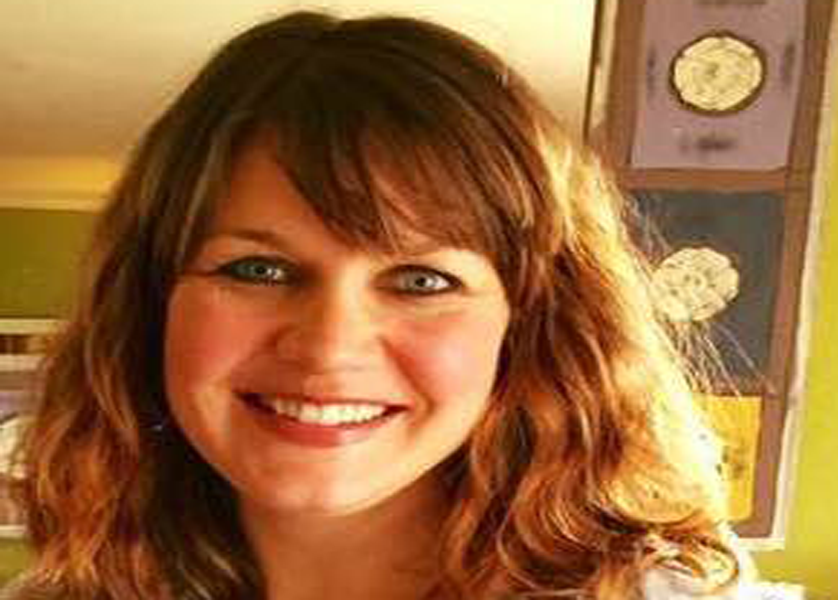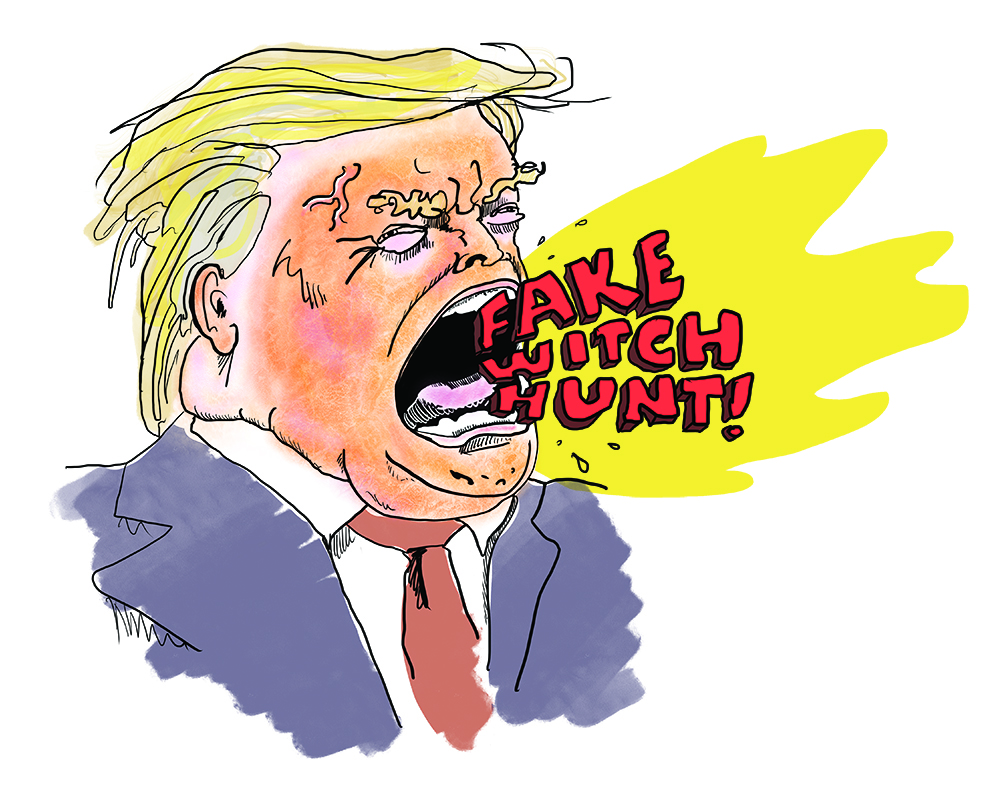If social media platforms were restaurants, Twitter would be Taco Bell, a quick place to grab a hasty update from the Trump administration after getting too many drinks downtown. Instagram would be like Bamboo Sushi, each post like an aesthetic roll drizzled with the sauce that is an appealing filter. And Facebook would be like Sweet Tomatoes, a little bit of something for everyone: family photos, painful Timehop reminders of the good times with the ex, and— depending on the person—almost constant breaking news rollouts from Hollywood, the White House, and from countries across the world.
It is this versatility that has made Facebook such an important place for the news media in recent years. In 2017, Pew Research Center reported that 68 percent of U.S. Facebook users get at least some news from the social media website.
A little personal research can reveal that mainstream national news networks like MSNBC and Fox make multiple posts on Facebook practically every hour, as is the case with print organizations like The Guardian and Breitbart. Even the Portland local alt-weekly Portland Mercury posts links to articles multiple times a day.
When Facebook administrators rolled out a new test this past October in select countries (including Cambodia, Guatemala, Sri Lanka, Bolivia, and Serbia) that separated news and business publisher’s content from content published by paid advertisers, friends, and family and places it in the new, experimental “Explore” feature, journalists across the world began expressing their concern.
According to The Guardian, publishers in these countries who use Facebook to share media experienced a 60 to 80 percent drop in user engagement on their pages. Head of News Feed at Facebook, Adam Mosseri, released a statement explaining that the goal of the test is to see if people prefer to have their personal content separate from their public content—save content published by paid advertisers. He states there are currently no plans to roll the tests out further. “It’s also important to know this test in these six countries is different than the version of Explore that has rolled out to most people,” Mosseri states.
The Explore feature that people in other countries are seeing features a melange of content that is meant to be specifically interesting to the Facebook user. It is an expandable drop-down tab and includes new events, a “Games Feed,” and among other features, a “Crisis Response” section that includes news stories and updates regarding tragic events.
But it’s a different story for places like Serbia, a country out of the scope of the Western news flow (a Google search of “Serbia in U.S. media” bears front page results regarding last year’s Olympic basketball feud between the two countries).
Serbia was ranked as 66 out of the 180 countries ranked in the 2017 Press Freedom Index compiled by Reporters without Borders, and described as “partly free” by the organization. On this list, Norway rests at number one, while North Korea sits at the very bottom.
Stevan Dojcnovic, the editor-in-chief for KRIK, an investigative journalism non-profit in Serbia, wrote to The New York Times in an editorial, criticizing Facebook CEO Mark Zuckerberg for toying with the country’s fragile democracy by placing unpaid published content into a different feed. “Facebook allowed us to bypass mainstream channels and bring our stories to hundreds of thousands of readers,” Dojcinovic writes, “by picking small countries with shaky democratic institutions to be experimental subjects, it is showing a cynical lack of concern for how its decisions affect the most vulnerable.” Dojcinovic expresses concern that mainstream media, which in his country fails to expose serious high-level government corruption, will be able to afford Facebook’s paid advertising fees, while smaller independent media will not.
On the Press Freedom Index, Cambodia is at 132, Guatemala at 118, Sri Lanka at 141 and Bolivia at 117. The country with the freest press featured in the test is Slovakia, which ranks at 17. This is down five places from last year, as the Prime Minister Robert Fico called some journalists in Slovakia “filthy anti-Slovak prostitutes” and has brought some lawsuits against the media in recent years.
In some ways, independant media across the world has allowed Facebook—a social media powerhouse formed in the U.S—to play a precious part in fragile media flow by relying on it to bring readers to websites that they otherwise might not know about, for free. Mosseri’s statement, attempting to alleviate fear that the test will spread further, indicates that Facebook is well aware of the power it wields, whether the website wanted it this way or not.
This article originally appeared in the print edition of our January 2018, issue.





